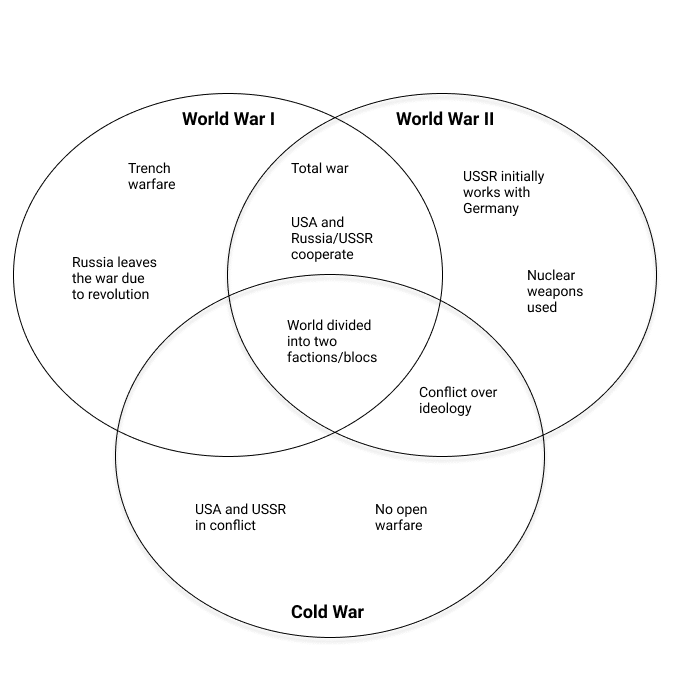World War I and World War II were two global conflicts that had significant impacts on the world’s geopolitical and social landscape. Although they were both global wars, they differed in their underlying causes, theatres of war, weapons and tactics, loss of life, and impact on the world. World War I was triggered by the assassination of Archduke Franz Ferdinand and was centered largely on Europe and the Middle East, while World War II was caused by Nazi Germany’s expansionist policies and had a worldwide impact. World War II saw the introduction of new military technologies such as tanks, aircraft, and submarines and resulted in a higher number of fatalities. Both wars contributed to significant changes in the world landscape and are a testament to the importance of working towards peace and diplomacy to prevent future conflicts.
World War I vs. World War II: Two Global Conflicts Compared and Contrasted
Introduction
Both World War I and World War II were historic global conflicts that had an enormous impact on the world’s geopolitical and social landscape. However, despite their similarities in being global wars, there were significant contrasts. This article will provide a detailed analysis of the similarities and differences between these two conflicts.
Causes of the Wars
The underlying causes of the two global wars were different. World War I was triggered by the assassination of Archduke Franz Ferdinand of Austria-Hungary, which sparked the rise of militaristic nationalism in Europe’s major powers. In contrast, World War II came about as a result of the expansionist policies of Nazi Germany, which embarked upon a program of aggression that aimed to enforce its military superiority in Europe and eventually creating a global empire.
Theatres of War
Both world wars affected many parts of the world, but World War I was largely centered on Europe and the Middle East, while World War II had a much more significant worldwide impact, with battles fought across Europe, Africa, the Pacific, and Asia. World War I had a vast number of countries involved, while World War II had more emphasis on “blocs,” allies, and axis powers.
Weapons and Tactics
The nature of warfare during World War I was still based heavily on traditional military tactics used in previous wars. Both sides made extensive use of trenches, machine guns, and artillery, which limited mobility and caused massive casualties. In contrast, World War II saw the introduction of new military technologies such as tanks, aircraft, and submarines, which transformed the way wars were fought. The use of nuclear weapons also marked a significant advancement in weaponry.
Loss of Life
Both wars resulted in huge losses in human life. However, World War II saw a higher number of fatalities, with estimates of up to 85 million people killed or wounded, compared to an estimated 16 million people in World War I. The atrocities committed by Nazi Germany during World War II, such as the Holocaust, also contributed significantly to the higher death toll in the second global conflict.
Impact on the World
Both wars had significant global impacts, with significant changes in the world landscape. However, World War II had a more profound and lasting impact, including the formation of the United Nations, the establishment of the U.S. as a global superpower, the beginning of the Cold War, and major social changes worldwide. World War I, on the other hand, contributed to the collapse of European empires but had a lesser impact on the United States.
Conclusion
In conclusion, while both World War I and World War II were global wars that had far-reaching impacts on the world, they were different in many ways. While World War I was characterized by traditional military tactics, World War II saw significant advancements in weapon technologies. The death toll in the second global conflict was also much higher than the first. Despite their differences, both wars are a testament to the destructive power of war and the importance of working towards peace and diplomacy to prevent future conflicts.
